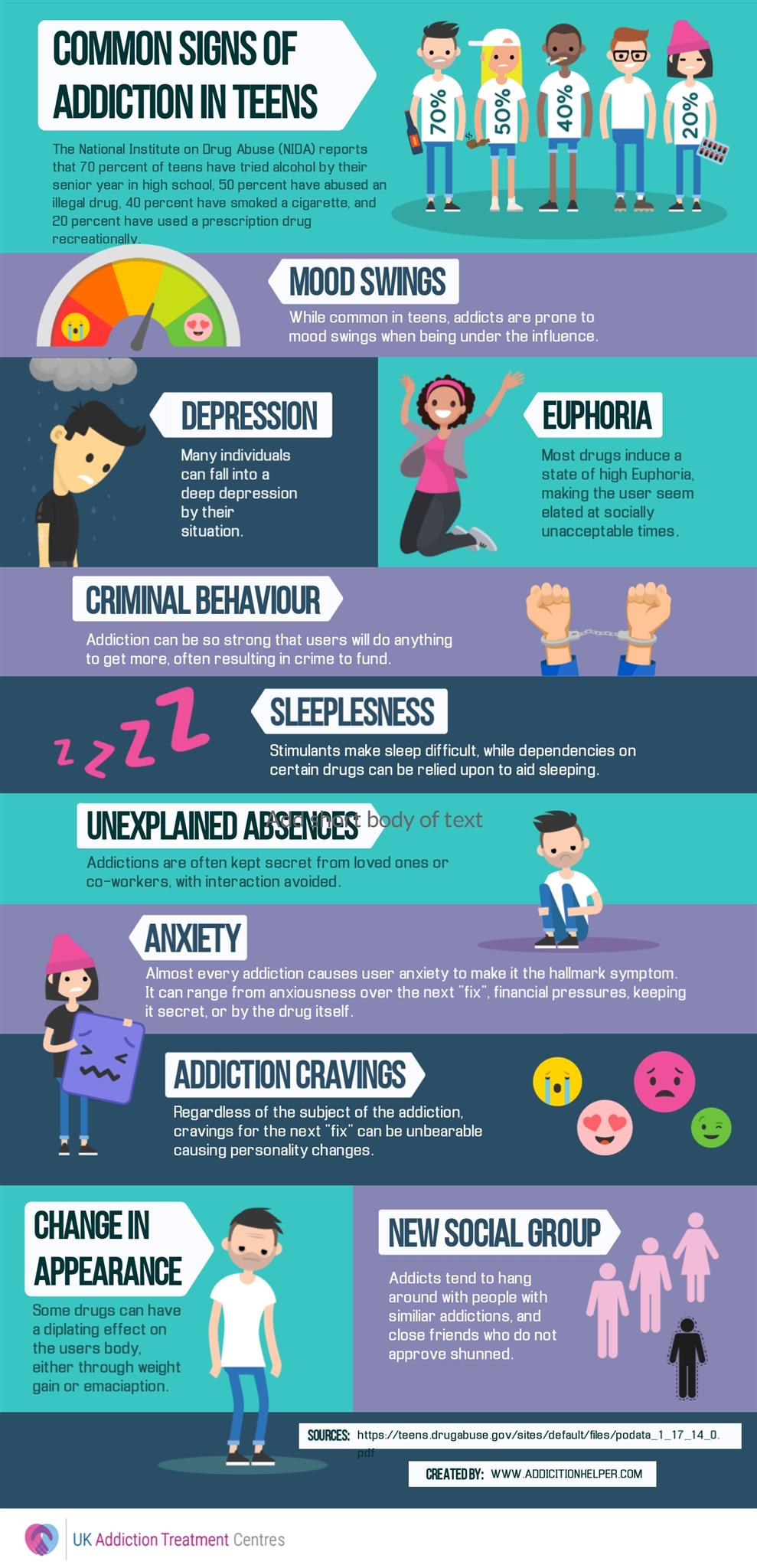[social_warfare]

[social_warfare]
According to reports by the National Institute on Drug Abuse (NIDA), 50% of teens have abused an illicit drug, 20% have used a prescription drug recreationally, 40% have smoked a cigarette, and 70% have tried alcohol by their senior year in high school.
Some common signs of substance addiction in teens include anxiety, euphoria, sleeplessness, mood swings, criminal behaviour, depression, hanging out with a new social group, changes in appearance, unexplained absences, and addiction cravings.
Anxiety
Anxiety is the hallmark symptom of all addictions since it is the ultimate effect of substance use. It often occurs as a result of the effect of the itself, concern about when and how to acquire the next “fix”, financial pressure, fear of being discovered, and increase in cravings.
Mood Swings
While mood swings are a common phenomenon in teens, addiction increases their frequency and duration while under the influence.
Depression
Substance addiction causes the individual to fall into a deep state of depression related to their situation.
Sleeplessness
Some substances can have stimulating effects that cause insomnia. Continuous use can lead the addict to become dependent on certain drugs to induce sleep.
Unexplained absences
To keep their addiction a secret from their family, friends, co-workers, and from every other person, substance abusers tend to avoid interaction.
Criminal behaviour
To be able to keep up with the increasing need for the addiction substance, and the subsequent financial pressure, an addict might be led to commit a crime to indulge his/her habits or get out of debt.
New social group
Addicts may begin to avoid friends who do not approve of their new predispositions. They become inclined to relating to and socialising with individuals from whom they can obtain their “fix” and who share similar addictions. These people might previously not have been within their former social circle.
Change in appearance
Some drugs can cause changes in the body of the addict, often manifesting as loss in weight and emaciation or even weight gain.
Addiction cravings
Regardless of the subject of addiction, cravings for the abused substance can often become unbearable and can lead to changes in the personality of the addict.
Euphoria
Most addiction substances can lead to a state of heightened euphoria, making the addict appear elated at inappropriate moments and they may also display socially unacceptable behaviours.

